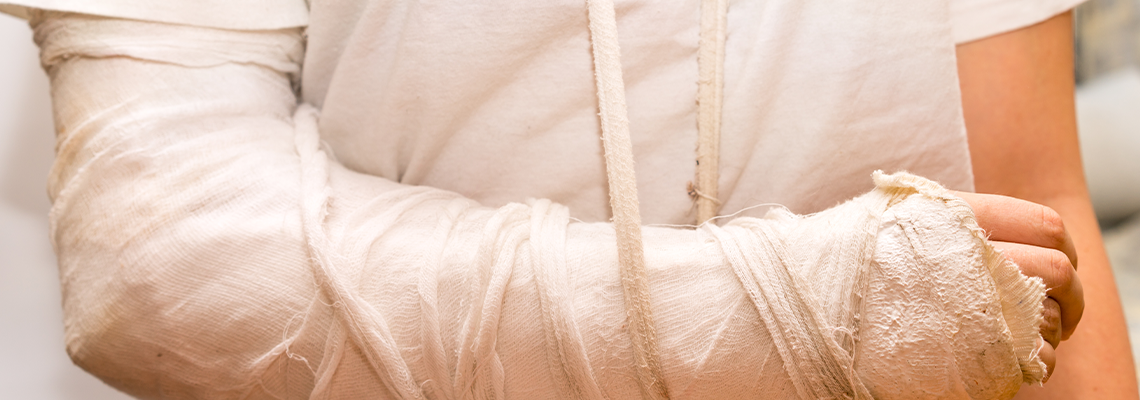
Hurt on a Friend or Neighbor’s Property: Should I Sue?
Whenever you are invited to a friend’s or neighbor’s property for a visit, you probably don’t expect anything bad to happen. You expect the friend or neighbor to keep their property in a reasonably safe condition and warn you of any unsafe conditions or hazards on the property.
Unfortunately, property owners do not always fulfill these expectations, which is why accidents on someone else’s property happen more often than you might think. If you have been hurt on a friend’s or neighbor’s property, you may wonder about your legal options for recovering damages. Should you sue your friend or neighbor? Is there any other (less uncomfortable) option?
If you sustained injuries while visiting someone else’s property (be it a friend or a neighbor), I can help. As a premises liability attorney at James P. Leahy Attorney At Law, I help clients understand their rights and navigate the legal process when seeking compensation for their injuries and losses. With an office in Elgin, Illinois, I also serve the surrounding areas, including St. Charles, Aurora, and Kane County.
Premise Liability in Illinois
The Illinois Premises Liability Act acknowledges the responsibility of property owners and operators to provide a safe environment for licensees, invitees, and any individual who may lawfully visit their property. The property owner’s duty of care extends to keeping their visitors and guests safe from foreseeable hazards.
Common examples of accidents that may lead to a premises liability claim include slip-and-falls, dog bites, third-party violence, collapsing staircases, and accidents involving defective equipment.
The Issue of “Foreseeability”
Whether you can sue the property owner for your injuries that occurred on their property depends on “foreseeability.” If an accident is foreseeable, a reasonable property owner would anticipate its occurrence. For example, if a property owner is aware of his dog’s aggressive tendencies but has the dog off a leash when a friend or neighbor visits, the owner may be held liable for a dog bite because it was foreseeable.
Property owners often try to avoid liability by arguing that the accident was unforeseeable because:
They did not know about the condition; or
They did not realize the condition was likely to cause injury.
Under the premises liability law, foreseeability means that a reasonable property owner should have anticipated the consequences of a particular condition or action (or lack thereof). If you can prove it, you can hold the property owner liable for your accident on their property.
Filing an Insurance Claim
If you were hurt on a friend’s or neighbor’s property, you need to find out whether they have homeowner’s insurance. If they do, you may not have to sue them to obtain compensation for your injuries and losses. When filing an insurance claim, you are not suing your friend or neighbor. You are filing a claim against their insurance company to make the insurer pay for your covered losses.
Once you know the name of the friend or neighbor’s insurance company, you should report your accident to the insurer as soon as possible. If you delay reporting the accident, the insurance company could deny you coverage.
What if Your Friend or Neighbor Has No Insurance?
If your friend or neighbor does not have homeowner’s insurance, things get a little more complicated. If that is the case, you have two options:
Use mediation to negotiate with the friend or neighbor a fair settlement offer to cover your losses (e.g., medical expenses and loss of income); or
File a lawsuit against your friend or neighbor.
Most people would want to avoid the second option at all costs because they may not be comfortable suing their friend or neighbor. If you file a lawsuit, you will have to prove that the property owner (your friend or neighbor) owed you a duty of care and breached a duty of care, which resulted in your injuries and losses.
Comparative Negligence in Illinois
The state of Illinois uses “modified comparative negligence” as the standard for recovering damages. Under this rule, you can file a claim and seek compensation if you are less at fault than the other party. Thus, if your percentage of fault is more than 50%, you will be barred from recovering damages.
If you were partially to blame for the accident on someone else’s property but you were less at fault than the other party, your recoverable damages will be reduced by the percentage of your fault. For example, if you were intoxicated at the time of the accident on someone else’s property, you could be deemed partially at fault, depending on the circumstances of the accident.
Experienced Guidance You Can Depend On
If you were hurt on a friend’s or neighbor’s property, suing the property owner may not be the only option to obtain compensation for your injuries. Fortunately, you may be able to get the compensation you deserve without escalating hostilities between you and your friend or neighbor. Contact James P. Leahy Attorney At Law to receive a free consultation and learn about your options.